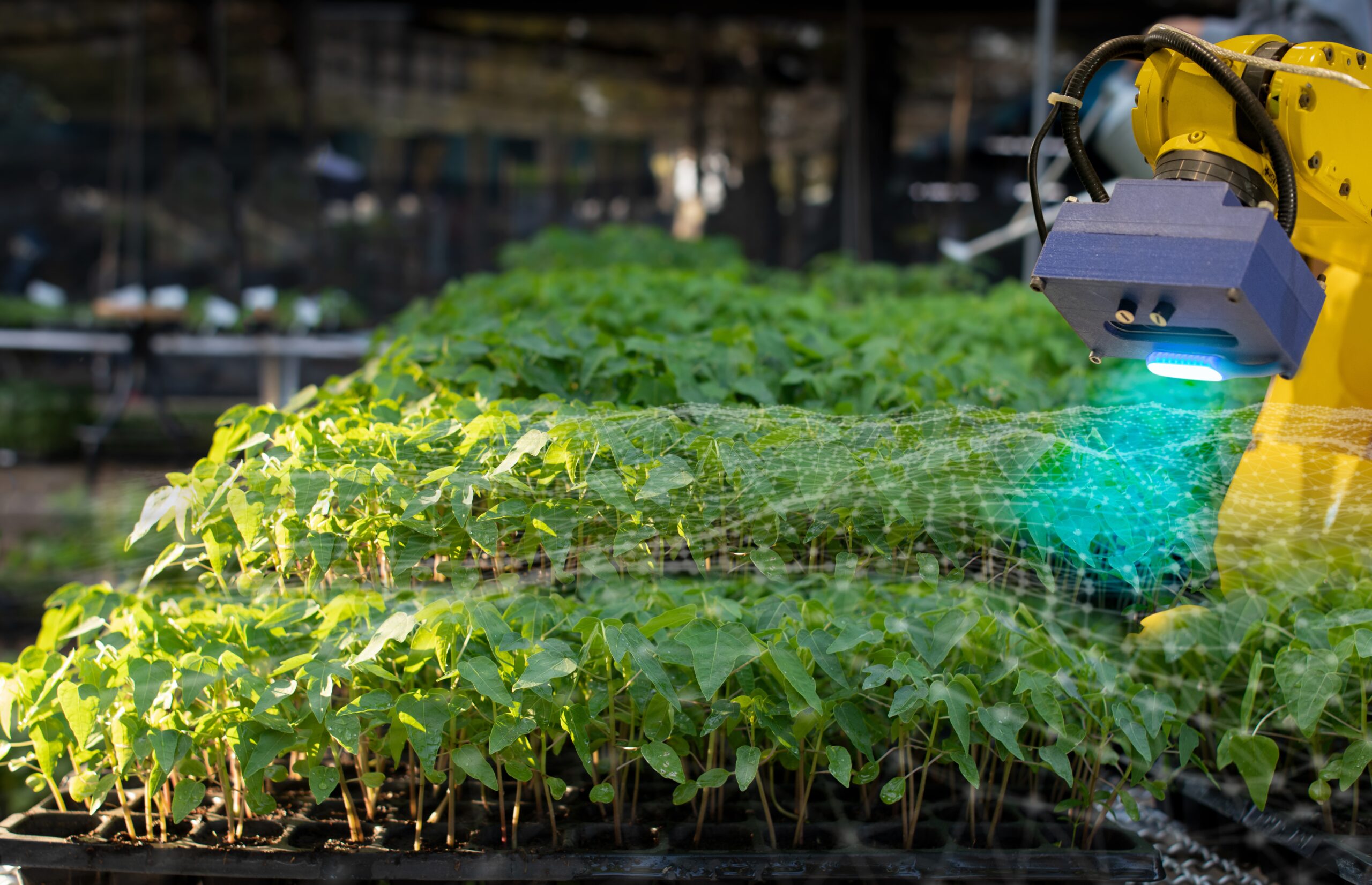Written by: Leanna Sweha, JD
The AI Institute for Next Generation Food Systems (AIFS) wrapped up its 2022 Spring Speaker Series with a panel bringing together the series speakers.
The panel members included:
- Oliver Vince, CoFounder of Basecamp Research, a London-based biotechnology startup that uses AI to develop datasets from the Earth’s biodiversity to help address the challenges that limit the commercialization of new products;
- Sofia Elizondo, Co-Founder and CEO of Brightseed, a biotechnology company that harnesses AI to reveal critical compounds in plants to address the planet’s health challenges; and
- Allison Kopf, Chief Marketing Officer and Head of Data Products at iUNU, a leading AI firm serving the CEA industry.
Harold Schmitz, co-founder of the March Fund and Chair of the AIFS Industrial Advisory Board, moderated. He gave an overview of the 2022 spring series, noting that each speaker had provided a valuable perspective on the role of AI across the food system, from discovery through to technology translation and scaling. This focus allowed for thinking about the innovation interface between universities, government and AI-based startups.
Schmitz then launched into questions, first asking, given that AI is positioned to shake up the legacy global agrifood system, where exactly is AI in each firm’s enterprise model?
Vince weighed in first, saying that an AI-based startup does not necessarily need to build around legacy systems, but rather can innovate “from scratch.” At Basecamp Research, they use AI to make the process of discovering novel ingredients from biodiversity in geographical hotspots more predictable. The core of Basecamp’s business is the information-rich data set gleaned from the natural environment and an AI platform to design new products around this data set.
Elizondo said that Brightseed’s focus is on the impact that novel bioactives can have on human health, most of which can be found in the existing food system. The heart of their business is an AI-based platform to find and predict the bioactivity of natural compounds. AI is not just a feature, but rather is fundamental to the business model. Brightseed uses AI to arrive at a sub-selection of sampled compounds and then validates them clinically. They then work with farmers to find the food sources to deliver these bioactives to consumers.
Knopf noted that, given that AI is core to iUNU, it may be more interesting to ask whether customers see AI as being core to their businesses. iUNU’s AI-based Luna system uses computer vision and data sets to put the plant at the center of optimization for the CEA industry. They prioritize the plant, how it grows and interacts with its surroundings. By delivering an AI-based system that reduces risk and functionally improves plant production, it is possible to shift the grower’s thinking to become AI-centric.
Schmitz next asked how AIFS could assist each firm to access data sets they do not currently, but would like, to have.
Knopf weighed in first, stating that agriculture is complex, because it is based on dynamic natural systems and is made more complicated by adding human-managed growing systems. iUNU currently uses manual data to develop digital systems for labor planning in CEA. They would like to automate the collection of this human-based data. In addition, they would like automated data collection for what is happening in the soil, under leaves, using digital capture systems.
Elizonda first noted that AI is best at solving specific problems where there is a lot of clean data. Brightseed derives its own phytochemical composition data from plants they bring in-house. They also curate biomedical literature data into a query system for their own research. Brightseed would like to have complete metadata for each of the plants they collect such as the soil, climate conditions, and harvest conditions.
Vince explained that Basecamp field teams collect samples on the ground along with metadata, such as geography, biome, plant-plant interactions, microbe-plant interactions, and molecular interactions. This data set is helpful, but as a startup, they are limited in terms of the resources available to maximize the data they can collect and how it can be used. Basecamp would like to be able to interface more with their partners’ data sets when developing a new product for them.
An audience member asked whether the firms are relying too much on AI, and whether other tools can complement AI and provide data and prediction solutions.
Knopf responded that iUNU sees AI as a tool that allows them to provide customers a better way to optimize a growing operation, not to replace all of the labor in an operation. In terms of other tools, iUNU has acquired other companies, including a consulting company that specializes in IPM, to provide growers with other tools that augment AI.
Another audience member asked about how AI has made a difference for a customer.
Elizondo told the story of Brightseed’s search for a product to address metabolic disease, including fatty liver disease, which impacts two billion people around the world. Brightseed had a hypothesis that natural bioactives existed to help, and its AI system predicted which compounds to target. Then they asked, what plants generate these compounds? Brightseed’s AI predicted 200 plants that would make this compound and validated two, one of which is black pepper. They also found the compound in hemp hull waste, which Brightseed is now commercializing. This new product would not be possible without AI.
Finally, each panelist was asked what kind of talent they are currently looking for in university graduates.
The panelists responded that, generally, they are looking for candidates in multiple areas. In terms of technology graduates, they are looking for computational biologists, engineers and data scientists that share their firms’ values and mission.
The speaker series will return in fall, so stay tuned for more exciting and inspiring speakers!

